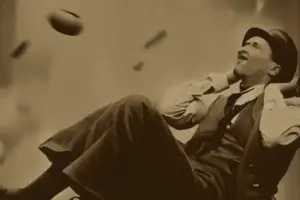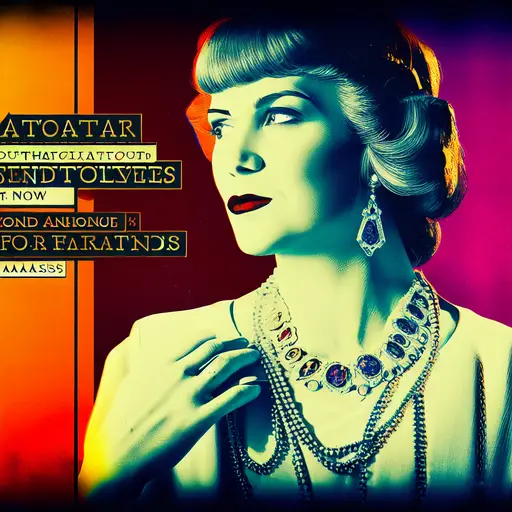The air was thick with the smell of sweat and poverty as Owen (played by Rockliffe Fellowes), a tough-as-nails criminal, trawled the grimy streets of a New York City slum. He was on a mission to find a young boy named Marie (played by Anna Q. Nilsson), whose life he had inadvertently saved during a robbery gone wrong. Owen’s hard exterior belied his tender heart, and he was determined to rescue Marie from the poverty and squalor that had claimed her.
As he searched for her, Owen witnessed the brutality of life in the slums, a place where people’s spirits were as broken as their bodies were malformed. Children, like Marie, were left to fend for themselves amidst the filth and violence. Owen’s search led him to an orphanage run by the warm-hearted and idealistic Eleanor (played by Maggie Weston). Eleanor had taken it upon herself to give hope and something akin to a home to the children abandoned to the streets.
Owen was intrigued by Eleanor and the passion that fueled her desire to make a difference in the lives of the slum’s children. But his tough exterior and reputation as a criminal made him keep her at arm’s length. That was until he discovered that Marie was under her care. This realization changes Owen, making him see the possibilities of a different life.
The story took a turn for the worse as Owen was arrested for a robbery he had committed with his gang. The events of the trial opened Owen’s eyes to the harsh punishment that awaited those who lived on the wrong side of the law. Crushed by the thought of losing his newfound sense of purpose, Owen wallowed in despair, even as Eleanor worked tirelessly to convince him that he could still be saved.
The climax of the story featured Owen being brought to the brink of death by one of his gang members, whom he had turned on by begging the judge for leniency and confessing his crimes. But in a twist of fate, Marie, whom he had rescued earlier on, was the one to help him regain consciousness and set him on the path to redemption.
As Owen convalesced under Eleanor’s care, she introduced him to the more refined points of a better life, slowly teaching him the ways of respectability. His transformation was gradual but steady, culminating in a final confrontation with his former gang leaders. In an epic battle scene typical of the movie’s genre, Owen takes on his past and prevails.
In the end, Owen realized that his past could not be erased and that his scars would be a constant reminder of the way things had been. But he also realized that he could use his experiences in the slums to do better by people, even those who reminded him of his past mistakes. The story ends with Owen walking off into the sunset with Eleanor at his side, symbolizing the hope that a life with purpose could bring.
The Regeneration was a movie that explored the depths of the human heart, asking difficult questions about redemption and what made a person truly good. It was a story of contrasts, pitting the harsh reality of slum living against the idealism of a life lived for others.
The characters were memorable, each one unique in their own way, yet woven together in a tapestry of humanity that spoke to the audience. From Owen, whose tough exterior barely hid his tender heart, to Eleanor, whose idealism bridged the gap between the worst of the slums and the possibility of a better life, each character was relatable in their own way.
The setting was also captivating, evoking both the grime and toughness of the slums and the possibility of something better. The contrast between the dark, grimy backstreets and Eleanor’s light-filled orphanage was both striking and metaphorical.
Overall, The Regeneration was a story that spoke to the heart of what it means to be human. It was a story that asked the hardest questions, yet provided a glimmer of hope for those brave enough to face them. It was an unforgettable experience, a movie that stayed with you long after the credits had rolled.












